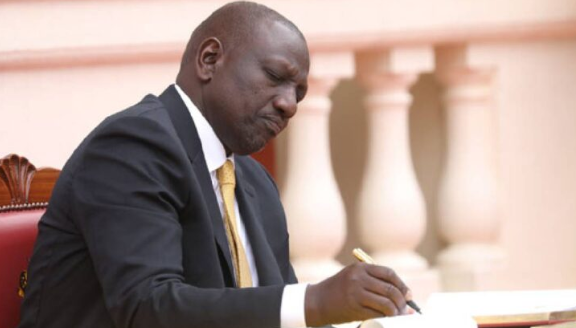As the pivotal moment for the Finance Bill 2024 approached, Kenyans launched a massive campaign to pressure their legislators into rejecting the proposed tax measures. The bill, which aims to increase taxes on various goods and services, including bread, fuel, and digital content, has been met with widespread opposition.
A significant social media influencer spearheaded the movement, using the hashtag #RespectMyHustle to mobilize Kenyans to call their Members of Parliament and demand they vote against the bill. Phone numbers of various legislators were quickly shared online, leading to a flood of calls and texts from netizens.
The campaign rapidly gained momentum as more people joined, sharing phone numbers and urging others to participate. Influential personalities like Wesley Kibande and Karen Ngari also joined the effort, encouraging Kenyans to “call them, text them, spam them” to ensure their voices were heard.
Some MPs responded to the campaign, with Narok Senator Ledama Olekina and Starehe MP Amos Mwago promising to reject the bill. Mumias East MP Peter Salasya confirmed that Kenyans had been inundating him with phone calls, even sending small amounts of money to verify the phone number’s authenticity.
This grassroots effort highlights the growing frustration among Kenyans regarding the proposed tax hikes and their determination to hold their elected representatives accountable. As the debate over the Finance Bill 2024 continues, the outcome will significantly impact the nation’s economic landscape and the daily lives of its citizens.
“Who has shared my number on X. Everybody across the nation is calling my number, texting me and WhatsApping me. I can’t sleep the phone is vibrating throughout ati I reject finance bill kesho na wananitumia shilingi moja kwa mpesa to confirm if it’s me. We are not voting tomorrow!” he said on X.
The National Treasury defended the proposed tax measures in the Finance Bill 2024, citing the country’s substantial debt as a primary reason. Treasury Principal Secretary Chris Kiptoo argued that the new taxes were necessary to mobilize sufficient revenue and stabilize the country’s economy.
Kiptoo explained that the government faces significant fiscal challenges and that the proposed tax measures are part of a broader strategy to ensure financial stability and meet debt obligations. He emphasized that without these new taxes, the government would struggle to generate the revenue needed to address its financial commitments and support public services.
Despite these justifications, the Finance Bill 2024 has faced intense opposition from the public.
The #RejectfinanceBill2024 campaign continues to gain momentum, uniting many Kenyans who are vehemently opposed to the proposed tax hikes. Social media has played a crucial role in this movement, with influential personalities and ordinary citizens alike calling on their Members of Parliament to reject the bill.
The outcome of the Finance Bill remains uncertain. However, the public’s outcry and the grassroots campaign highlight the significant disconnect between government policy and public sentiment.
The debate over the Finance Bill 2024 is far from over, and its resolution will have a profound impact on Kenya’s economic future and the everyday lives of its citizens.



